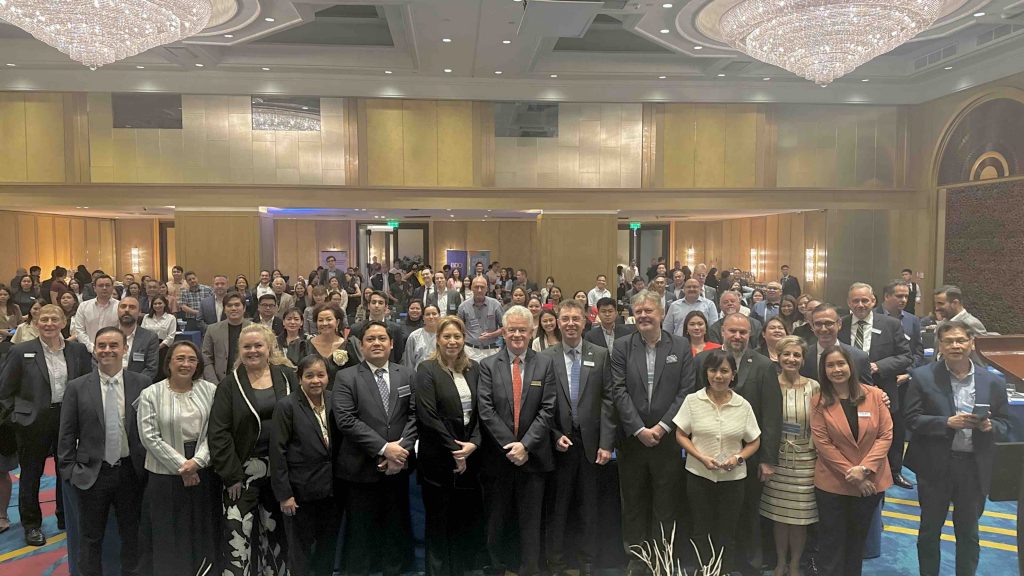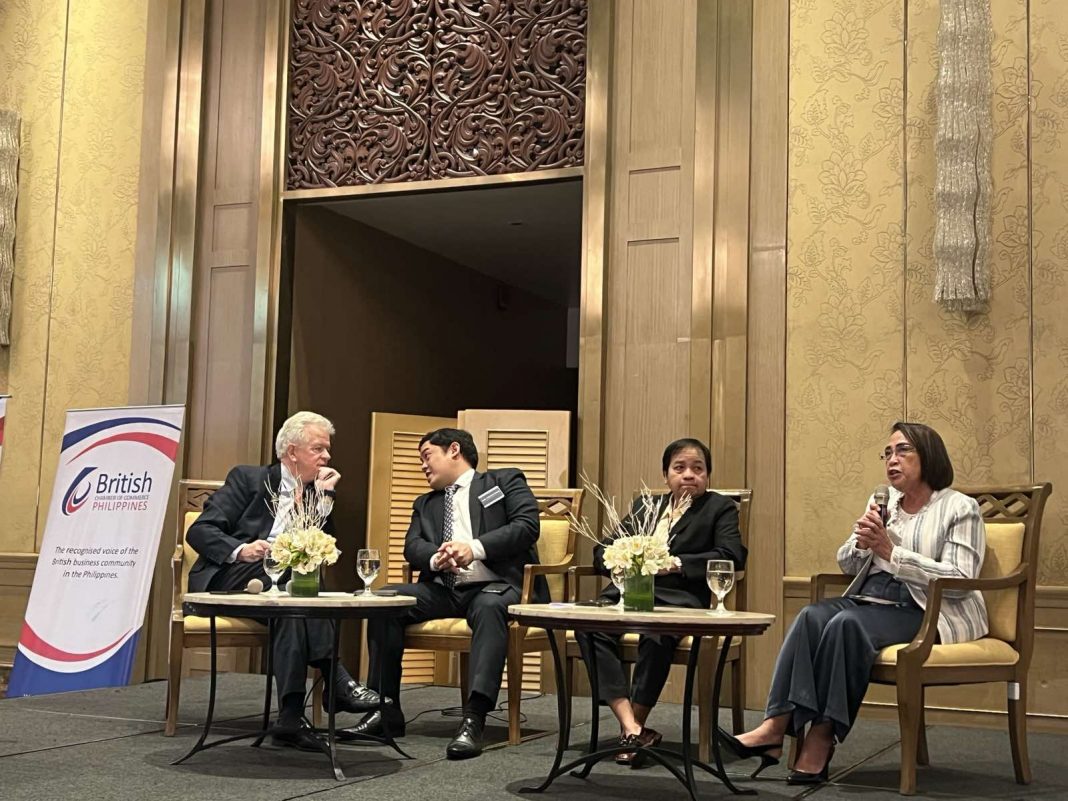By Marinel E. Peroy
European Union (EU) Ambassador to the Philippines H.E. Massimo Santoro announced that the second round of EU-PH free trade agreement (FTA) negotiations is scheduled to take place next month in Manila. This update, which underscores the growing confidence in the Philippines’ economic trajectory, was shared at the 9th Joint Economic Briefing (JEB), held in Makati City on January 16.
With the theme “Driving Economic Momentum and Investment Potential in 2025,” the forum brought together members of the diplomatic community, business executives, government officials, and private sector representatives. The event highlighted key reforms and initiatives positioning the Philippines as an attractive hub for investments.
Ambassador Santoro emphasized the Philippines’ critical role in the Indo-Pacific region, describing the ongoing trade discussions as “starting with a positive momentum.” He expressed optimism that the FTA negotiations, scheduled for February 10-14, 2025, will further enhance EU-PH bilateral trade relations.
“These discussions aim to facilitate not only merchandise trade but also trading services, while creating more incentives for investment,” Santoro said. “We believe that the free trade agreement can serve as a catalyst for economic growth benefiting businesses, workers, and consumers.”
He also reaffirmed the EU’s commitment to an “open, fair, and rules-based trading system” and cited the World Bank’s forecast that the Philippine economy will grow by 6.1% this year, fueled by robust domestic consumption and investments.
“Through the FTA, our objective is to elevate our bilateral economic ties to a new, higher level,” Santoro added, noting that strengthened trade agreements will unlock economic opportunities for both nations.
Reforms driving economic growth
The forum’s optimistic outlook was bolstered by discussions on key reforms and liberalization measures. Policies such as the Corporate Recovery and Tax Incentives for Enterprises (CREATE) Law, the Ease of Doing Business Act, and the Green Lanes for Strategic Investments were identified as enablers of streamlined services and increased investments.
According to Undersecretary Angel Ignacio of the Office of the Special Assistant to the President for Investment and Economic Affairs (OSAPIEA), priorities such as the Philippines Luzon Economic Corridor (LEC), clean energy, cybersecurity, and fostering a favorable business climate are driving efforts to attract both domestic and foreign investments.

“Several countries, including the United Kingdom, South Korea, Australia, and Sweden, have expressed interest in contributing to the corridor’s development,” said Ignacio. She also highlighted the government’s commitment to upskilling and reskilling the Filipino workforce in cybersecurity, enabling them to excel globally without leaving the country.
“By prioritizing these sectors, we aim to establish a robust economic foundation that attracts investments and secures sustainable growth,” she added.
Foreign chambers champion collaboration
The event, organized by European chambers of commerce in the Philippines—including the Belgian-Filipino Business Chamber, the British Chamber, the French Chamber, the Spanish Chamber, and others—showcased the collective efforts to promote foreign direct investments and sustainable economic practices.
Chris Nelson, Executive Director and Trustee of the British Chamber of Commerce Philippines, highlighted the chambers’ commitment to overcoming challenges and advancing investment opportunities.
“We, as foreign chambers, are strong advocates for further investments in business and have worked together for many years. The key is action—moving things forward and addressing challenges,” Nelson said.
He further emphasized the need for sustained policy reforms, stating, “Let us celebrate success and continue pushing hard while monitoring progress. These reforms are promising steps toward a more transparent, efficient, and business-friendly environment.”
The 9th Joint Economic Briefing underscored the shared optimism among stakeholders about the Philippines’ economic potential, fueled by international collaboration, policy reforms, and a strategic focus on sustainability and innovation.














